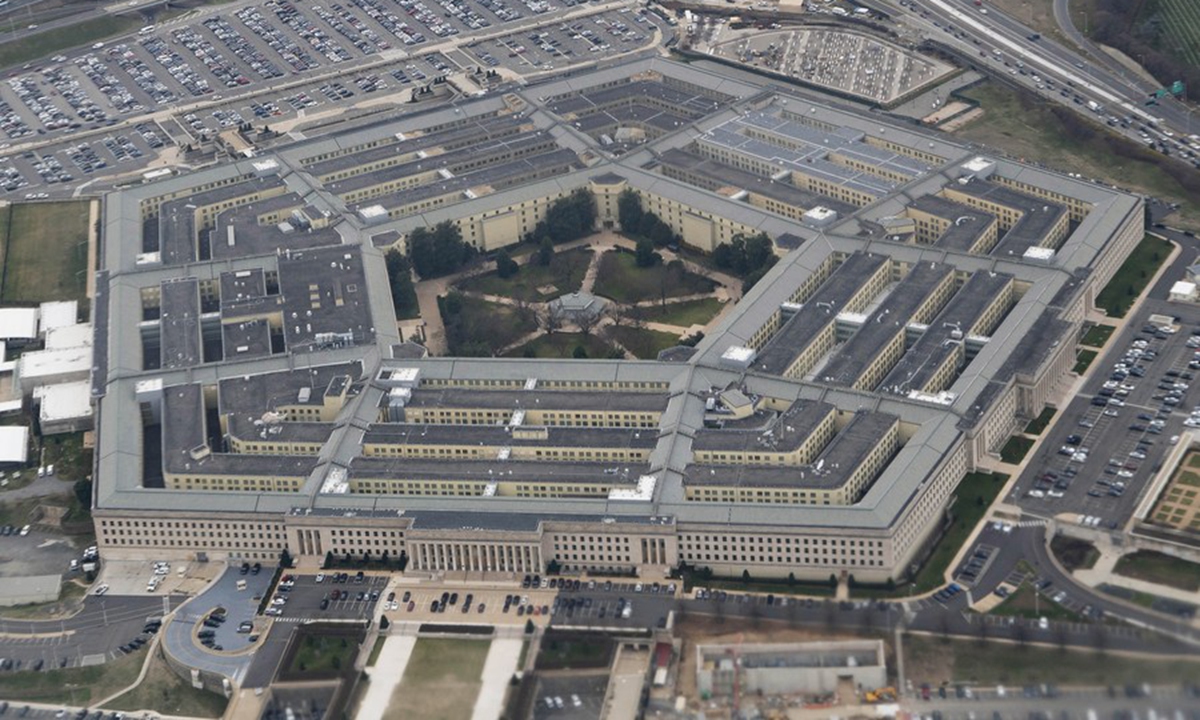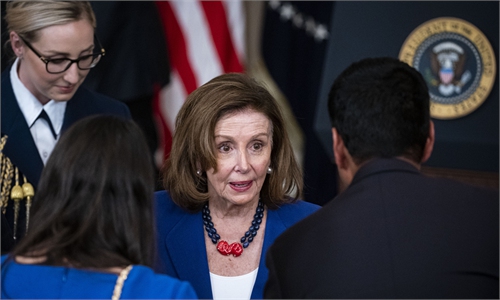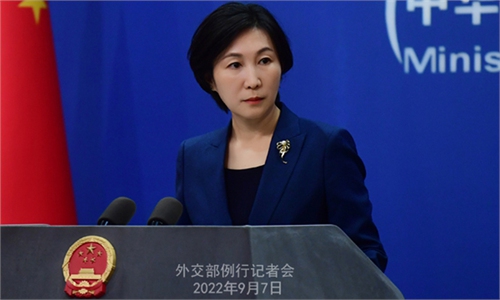Budget-driven Pentagon traps in internal competition of 'who smears China the best'

Photo taken on Feb. 19, 2020 shows the Pentagon seen from an airplane over Washington D.C., the United States. Photo: Xinhua
It is well-known that US politics revolves around money. However, there is one notable trend we cannot ignore over the years: Politicians and branches of the US military, driven increasingly by budget, are competing with each other to play up the "China threat" in exchange for their own benefits.Pentagon's $842-billion Fiscal Year 2024 Budget is the highest ever, seeing a $26 billion or 3.2 percent increase over the previous year. During his testimony before the Senate Armed Services Committee, Secretary of Defense Lloyd Austin explained Tuesday that the budget request is largely due to strategic competition with China.
"This is a strategy-driven budget — and one driven by the seriousness of our strategic competition with the People's Republic of China," said Austin, emphasizing that Beijing is Washington's "pacing challenge."
Echoing Austin's comments, Joint Chiefs of Staff Chairman Mark Milley testified before the House Armed Services Committee Wednesday that China is on a "disturbing" path to become militarily "superior" to the US by mid-century, according to Fox News. Not surprisingly, US military officials continue to repeat clichés about China's so-called military threat.
It seems the US military is now engaged in office politics. The budget-driven Pentagon has applied an armchair strategy, seeking more benefits through shaping and fleshing out US' imaginary enemies. In this way, the branches are likely to receive a larger budget. At the same time, this can be a wonderful opportunity for some officials to accumulate political capital to climb up the political ladder.
In the case of dealing with China, this has been manifested as a competition within the US military for "storytelling skills," as those who can portray China as more frightening will profit more.
One recent example would be that the White House this month proposed a $30 billion annual budget for the US Space Force, nearly $4 billion more than last year and a bigger increase than other services, such as the Air Force and Navy. According to the Wall Street Journal, this is because the US Department of Defense (DoD) is preparing for future space warfare against growing "potential threats from China and Russia."
However, is this really the case? Over the past two years, what we have observed is US Space Force and DoD officials have been talking more about China's "military capability in space to strike US forces." Therefore, in this context, the US Space Force has received more budget because it is the loudest in terms of convincing Congress and the White House to step up its plan of countering China.
China is just a pretext Washington uses to justify its significant increase in military budget; the true intention of the US is to maintain its global hegemony. The country believes that some other nations are challenging its global hegemony or even aiming to change the international order that the US has created and dominated. It is out of the need to contain these countries that Washington has been seeking greater military capabilities.
If Pentagon does not hype that China will surpass the US regarding military capabilities, then there is no way for it to convince those politicians in Congress who are loyal believers of the cold war thinking. As a result, the US military has to set up imaginary enemies to gain broad public support within US society and financial support from the country's policymakers.
Song Zhongping, a Chinese military expert and TV commentator, told the Global Times that Pentagon, while engaging in office politics, is also making extensive use of the think tanks that serve it. If it hopes to receive the amount of budget it wants, a lot of false information needs to be fabricated to smear China, and this is the responsibility of these think tanks, Song noted. In short, they are weaving excuses for the US military officials to take a more aggressive approach against China.
In the calculations of some US politicians, the increase in US defense budget can be justified once the US government and the public form a concerted effort against the "China threat." And with the DoD's policy driven more by budget, Washington will only pursue containing China's development more in a toxic political environment. In such a scenario, US politics will inevitably be hijacked by militarism, going down an increasingly irrational path.



